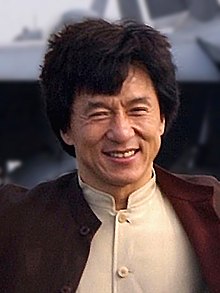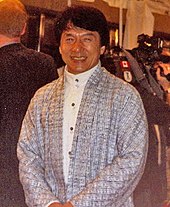Q-1. What is the difference between singing lessons and voice lessons?
A. It’s just semantics. People who look to begin singing usually ask for “singing lessons” but people who teach singing most often call themselves “voice teachers” or advertise “voice lessons” because they teach you how to master the use of your instrument, which is your voice. Just like in piano lessons, where you master the instrument, the piano.
You may also see ads for “vocal coaches”. They concentrate on improving your song performance, where a “voice teacher” concentrates on your vocal health and technique. Some piano accompanist’s become great “vocal coaches”.
However, the title “vocal coach” is sometimes used by teachers of the speaking voice for public speaking and acting. They rarely teach singing. The least confusing name is “speech and dialect coach”. A dialect coach teaches accents to actors.
Q-2. I want to sound better but not lose my style. How can singing lessons help?
A. You are not alone in that wish. If you have a creative bone in your body, you’ll feel this way. You need to interview prospective voice teachers and tell them this. Try to find a teacher who will diagnose your basic problems in how you produce sound, but not pass judgment on the style. I say this because depending on the city you live in, you may have access to teachers who specialize, as performers, in one style more than another. New York is flush with teachers who are professional classical or theater singers, and LA is packed to the gills with teachers who make a living in the recording industry. But a good teacher- even one who’s sings differently from you- should develop you in a way that is appropriate for your voice type and applicable to your style.
Ideally you want a program that loosens you up, make you’re voice more flexible, build up your range, and perhaps add new “colors” to your sound. For example, if you can only sing loud or slow, you’ll want to add lighter contrasting tones to make your song emotions more varied. Singing lessons should stretch your range and build breath control and body strength, without interfering with your vocal personality. In fact, lessons should give you more tools to try more unique things! Probably the best thing about lessons is learning how to have power without straining. Poor pitch and a thinning or small range is just a symptom of a more fundamental problem with straining or support. Read More about Vocal Evaluations. Finally, don’t be surprised if most voice teachers work you out with a smoother approach…I hesitate to use the word, Classical, to make you turn and run….but most good teachers have had some classical training in their background. It doesn’t mean you have to sound that way yourself. But in fact, clear, melodic, scales and jumping exercises on 3/4 power will make all singers perform better, especially those with aggressive songs. Oh yes, I believe a teacher should help you become independent, so that you understand what you are doing right, and how to do it consistently.
Q-3. Aren’t you just born with the talent to sing or not?
A. To a certain extent. And to a certain extent it’s a PR myth. This is how I like to answer that “born with it or not question”…the best and bravest singers are singers first, and students of singing later. Kids who like to sing never shut -up and therefore they grow. The intuitive development gained by singing throughout childhood, i.e. vocal strength, timing, an ear for harmony, and an ear for matching instruments cannot be made up for later- unless they perhaps master a musical instrument as a child. Good singing is more than a great sounding voice. This is why there are successful pros who may not have the most amazing tone, but really take the house down.
Q-4. Then why would a natural talent ever need lessons?
A. Well here’s a common scenario; you might perform like crazy as a kid, not take voice lessons, and do fine until you hit your late teens or early twenties, when you discover you just can’t do as much as you ‘d like to. A child choir-singer can become a professional artist if they have good training between 18-25, the College years.
Another scenario is the young stage star with phenomenal presence. Going on raw talent, he stars in every High School musical, she tears down the house at summer rodeos, she gets booked on Broadway, he signs a record deal. The demand of these careers guarantees vocal blow out. The Early Nova needs training to go beyond the “natural talent” level and shift to the “self knowledge” level. Ultimately, training is about self mastery. Every natural talent is going to get backed into a corner eventually and need lessons some time. If they don’t tell you they have a voice teacher on their website, trust me… that’s just posing and PR.
Q-5. I’ve taken a long time off. Can I get anywhere if I start up again?
A. Sometimes due to life choices, an adult with all sorts of talent and music training may stop singing for a while. That might be due to family, or fear, or perfectionism, or just not getting enough good luck at the right time. But because the foundation is there, one can pick it up again and get a really good sound together, and probably have a more emotional performance from all that life experience. I won’t fool you, it is just a little harder to generate contacts to get your foot in the door. But it can be done. Start practicing again. I say, if you’ve got to do it, then just do it. Read More about what you will learn in Voice Lessons. Q-6. I’ve had classical training, but I don’t want a classical career. How can I adapt my sound?
A. You have the easiest problem for me to solve. My techniques utilize a whole new genre of voice exercises that work your tone, diction and vowels for pop placement and other modern styles, but retains the flexibility you’ve developed so far. I invented this technique for this exact type of change over, and it really works.
Q-7. I only want to sing for a hobby. Is it worth it for me to train my voice?
A. Do you brush your teeth? I mean really, it just matters how good you want to appear, not how much money you get for it. If lessons make you sound good, and singing makes you feel good and makes the people that love to hear you happy, put it in your life. This can be satisfying enough, and for many is more satisfying than the headache of a struggling career.
Q-8. I’ve been going hoarse lately but I’ve been singing all my life. What could it be?
A.This diagnosis is best determined by a joint team of a medical doctor (an E.N.T. Ear Nose Throat Specialist) plus a voice teacher in that order. If nothing is wrong either place, you may have to trim your performance and practice schedules.
The doctor will use a “Scope”- a little video camera on the end of a teeny cord- to determine if you have nodules or some type of tissue damage. He/she will also determine if you have an infection or allergy that has made your vocal cords inflamed. (Females with hormonal problems can have their vocal health yo-yo about.) The E.N.T. should check if you have GERD- acid reflux- where stomach acids are burning your vocal cords. Once all medical conditions are ruled out or treated, see a voice teacher who can evaluate if you are straining, if your song keys are wrong, and such. Then take a few months of lessons- 3 should do it,- and reverse any bad habits. You also need a custom warm-up routine to use before performing. Ask your voice teacher to evaluate your live show. You could be doing something different up there that is blowing you out. Read About Singers Secrets for maintaining a healthy voice. - Don’t sing more than 1.5 hours a day including warm-ups.
- Take 3 days off in silence per week until your voice is back.
- Thereafter, take 2 days off per week from singing. At that pace, add on 15 minutes extra singing any day that you sing. Every 2-3 weeks, add another 15 minutes.
- When you are fully better, don’t exceed 3 hours a day singing, or sing for more than 4 days straight. If you get ragged again, pull it back. Eventually you’ll find your pacing.
- Be mindful of wasting energy. The voice is merely two tiny folds of soft flesh: it is not steel. It cannot hold up to the tours and schedule demands most artist have these days.
- Get more rest. Lack of sleep is the biggest cause of losing a voice.
- Make your band run through one set in rehearsal without your vocal. They need to get tighter anyway! Then run a vocal set. Make sure your monitors work.
- Be mindful of tempos and keys. Every decade of your adult life (between ages 15-25, again at 25-35 and again after 50) your vocal timbre and range is different. You have to allow for these changes in adjusting keys, tempos and song selection.
- And the obvious? Keep away from cigarette smoke and smoke machines on stage.
Q-9. How can I tell if my child needs voice lessons?
Most kids and teens get started singing naturally because they have an impulse. School districts or religious communities with choirs that practice 3-5 times per week are the best places to develop the young singing voice. This is where the young ear learns fundamental musicianship, harmony, counting, and staying in tune.
However in the US, unlike European nations such as Germany and England, the choir system for kids in school has been all but obliterated. Added to that lack, kids emulate the pop music they buy on CD, which doesn’t essentially develop a young voice properly. So we’re in a catch 22 about voice lessons and kids. But here are some guideposts:
If your child has no choir opportunities, get him/her voice lessons that are gentle and fun, which use a combination of pure singing and easy pop singing. They’ll develop good habits but stay interested. During puberty for boys or after puberty for girls, give them private lessons. At this age they’ll have the body size and hormones to support the voice. Any professional performing child should have a voice teacher to keep them from damaging their voice.



























